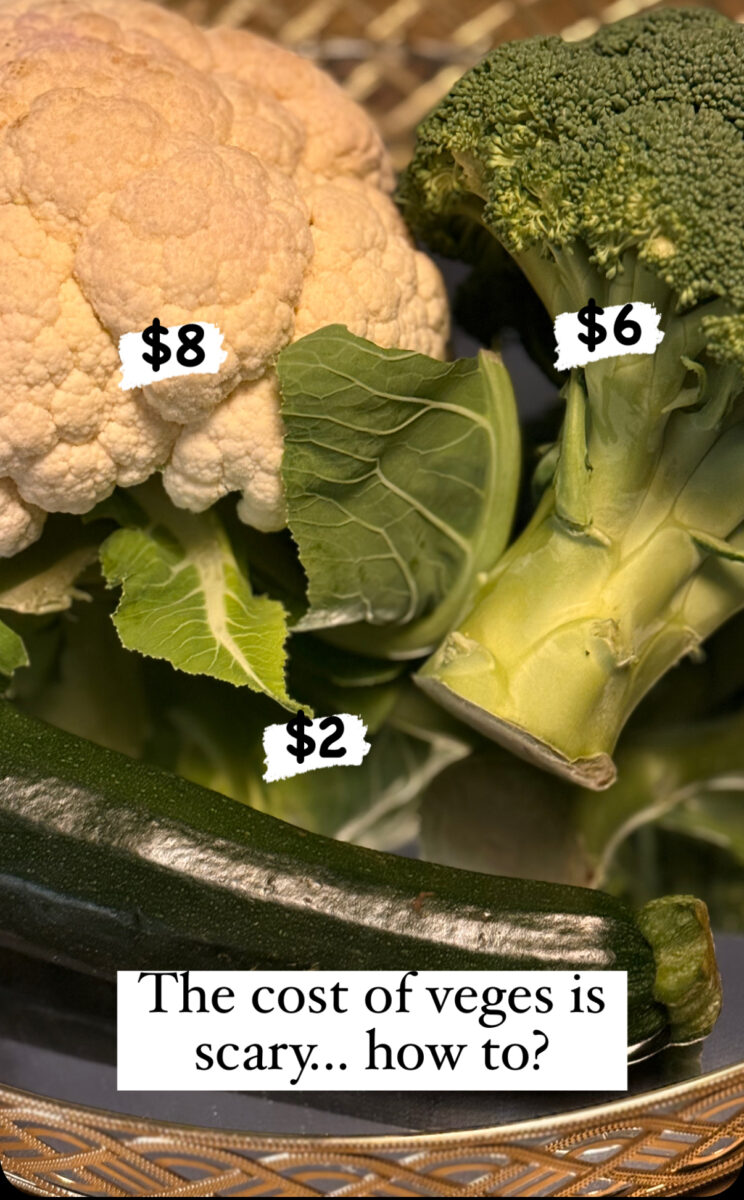It’s definitely a challenge to feed a family healthy meals, especially when vegetable prices are high.
In the past year, vegetable prices in Australia have generally increased, with a reported average rise of 7.3%. Some specific vegetables have seen even higher price increases. AUSVEG.com.au reported;
Broccoli: 17.6% increase in value with a 7.4% drop in volume.
Carrots: 12.4% increase in value with a 1.4% increase in volume.
But there are many strategies you can employ to make it more affordable and ensure your family still gets the nutrients they need.
A few strategies I recommend…
* Buy in season: This is perhaps the most impactful tip. Produce that is in season is more abundant, tastes better, and is significantly cheaper. For example, right now (late June in Victoria), you’ll likely find good prices on citrus, apples, pears, and some cooler-weather vegetables like cabbage, kale, and root vegetables. Consider “imperfect” produce: I always head to the ” odd bunch” or ” not quite right” stands at the local supermarket…Some supermarkets and specialty stores offer “ugly” or “imperfect” fruits and vegetables at a discount. They taste just as good and are perfectly nutritious.
* Buy in bulk for staples: Non-perishable vegetables like potatoes, onions, and carrots often come in larger, more economical bags.
* Frozen and canned vegetables are your friends: Don’t dismiss them! I frequently add mixed frozen veges to casseroles, soups, rissottos and , my kids favorite, homemade fried rice…They are often picked and processed at their peak ripeness, locking in nutrients. They can be much more cost-effective than fresh, especially for out-of-season items. I recommend to look for options without added salt or sugar. Stock up when they’re on sale.
* Shop at farmers’ markets: While not always cheaper, farmers’ markets often offer fresher produce directly from the source, which can sometimes be more affordable than supermarkets, especially for certain items. Plus, you’re supporting local farmers. In Victoria, you can find various farmers’ markets listed on the Melbourne Farmers Markets website or by searching for “farmers markets Victoria Australia.”
* Grow your own (even a little):
Ive had success with tomatoes, lettuce, zucchini and lots of herbs..Even a small herb garden or a few pots of leafy greens can significantly reduce your grocery bill and provide fresh, healthy produce.
* Plan your meals: Before you shop, plan out your meals for the week. This helps you buy only what you need and reduces food waste.
* on Sunday afternoons I love Batch cooking: ( I try and rope the kids in to help) Cook larger quantities of staple ingredients (like roasted vegetables, grains, or legumes) that can be used in multiple meals throughout the week.
* Incorporate legumes and grains: Lentils, beans, and chickpeas ( even out of a can) are incredibly nutritious, cheap, and filling. They can be used to stretch meals and provide protein, reducing the need for expensive meat. Think lentil curries, bean stews, or adding them to salads.
* Don’t waste anything: Utilize vegetable scraps for homemade stocks or compost them. I frequently Use slightly wilted vegetables in soups, stews, or roasted dishes. Or cakes!
Amazing ideas For Leftover Vegetables:
FRITTATAS:
BUDDHA BOWL: …
BUBBLE & SQUEAK/HASH: …
RISOTTO: …
SOUP
LASAGNE/PASTA BAKE: …
VEGETABLE PIE: …
FRIED RICE:
By combining these strategies, you can significantly reduce your food budget while ensuring your family enjoys delicious and nutritious meals packed with vegetables.
See you on the mat,
Lisa x

